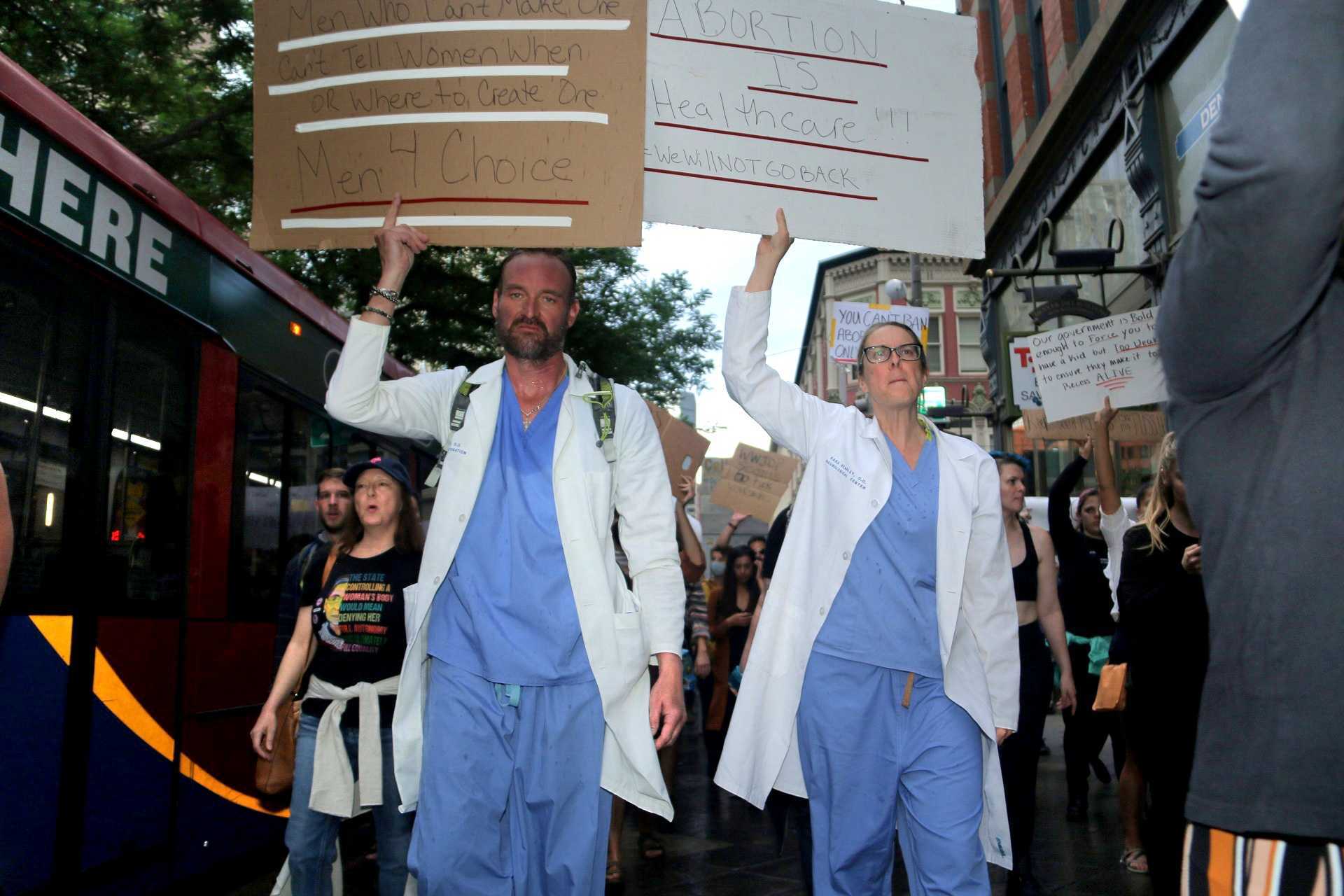
Over the past year, as some states have rushed to use their newfound power to outlaw or restrict abortion access, Colorado has been part of an opposite movement to protect access to the procedure.
Even prior to the U.S. Supreme Court’s reversal of Roe v. Wade, the Democrats in charge of Colorado’s government started working to implement protections for people to get an abortion.
Because there was nothing in Colorado’s law or constitution that would have restricted abortion without Roe in place, the Dobbs ruling on its own would not have changed access in the state. But lawmakers wanted to go further. In March of 2022, the Democratic-controlled legislature passed a bill to cement legal abortion into state law.
The policy also prevents local governments from passing their own restrictions on the procedure (Pueblo City Council did consider a local abortion ban, which would have put the city in conflict with the new state law, but dropped the effort.)
While Colorado is not entirely an access island, out-of-state patients have increased
Ahead of the Dobbs decision, it was predicted that Colorado and New Mexico might rapidly become the only states in the region with abortion access.
So far, that hasn’t happened. Kansas voters reaffirmed their state’s right to abortion, judges in Utah and Wyoming have delayed the implementation of bans in those states, and Nebraska lawmakers chose to keep the procedure legal in the first trimester.
However, Colorado has seen a major increase in people seeking abortions from out of state, leading to longer wait times for the procedure. The Cobalt Action Fund, which helps people access abortion who can’t otherwise afford it, reports it assisted nearly 600 people from other states in obtaining abortions in Colorado last year.
Preliminary data from the state, as reported by 9News, shows that more abortions were performed in Colorado in 2022 than in any year since the mid-80s, with two of every seven patients coming from out of state, a sharp increase. Texans made up the largest share of those patients, followed by Wyoming and Oklahoma.
More protections passed post-Dobbs
Following the Dobbs decision, Gov. Jared Polis issued an executive order in July aimed at giving legal protection to people who come to Colorado for abortions, or to anyone who helps another person cross state lines to obtain the procedure.
When state lawmakers convened for the annual legislative session in January, turning that executive order into a full state law was a top priority for Democratic leaders. Lawmakers also expanded it to include protections for providers and individuals receiving gender-affirming care.
Supporters say the goal was to ensure access without fear of prosecution and to make sure Colorado would not participate in any potential criminal legal proceedings out of state. Some neighboring states, including Wyoming and Oklahoma, have passed abortion bans, while Utah and Nebraska have severely restricted transgender care for minors.
The measure was part of a package of new laws aimed at ensuring access to abortion, which also included expanding private insurance coverage for the procedure and other reproductive care.
An ongoing lawsuit against a controversial treatment at crisis pregnancy centers
Colorado has also set restrictions on how crisis pregnancy centers — which generally seek to convince pregnant women not to abort — can advertise their services, including making claims that they can reverse a medication abortion, a scientifically controversial procedure.
Colorado became the first state to effectively outlaw the so-called abortion reversal treatment, by classifying it as “unprofessional conduct.” That law is slated to go into effect later this year, but only after state health officials review the science behind it to decide whether it meets the criteria of a “generally accepted standard of practice” or not.
Voters will soon likely get a chance to weigh in as well. Supporters of abortion rights plan to put a question before voters in 2024, to them to add the right to abortion access into the state constitution.
They may also seek to undo Colorado’s ban on using state funds to pay for abortion services.








